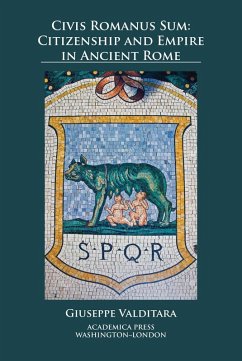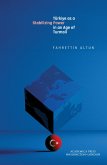The story of Rome and its people draws on ancient legends passed down from generation to generation. Circulating throughout the Mediterranean world in the centuries after Rome's legendary founding, they were later enshrined in the words of the poets and historians of the great Augustan age and have been studied ever since. Before it was a mighty empire, Rome was born as a Latin settlement on the Palatine Hill and from the beginning showed an inclination to integrating different peoples through a federation. The early legends, born out in fact and in Rome's later history, offered an element of mixed ethnic identity. As Rome expanded its rule across Italy and over the world, adherence to Roman identity and values stood as the main qualifications for "becoming Roman" and enjoying all the privileges of Rome's civilization. As migrant populations traverse today's world, assimilation remains a crucial issue of debate in managing borders and defining societies. As the eminent Italian jurist and educator Giuseppe Valditara shows in this exceptional new book, Rome was born by uniting different peoples all on equal terms and without discrimination and relying on a strong collective identity. To defend this identity and the security of its citizens, not coincidentally, the walls were the first public building. Rome was never racist: people could become citizens and achieve important positions without distinctions of race, religion, or nationality. Rome was a meritocratic society that put state interest first. Its whole politics of citizenship and immigration revolved around this concept. The assimilation of foreigners willing to assimilate. A strong pride in belonging to the community arose at the base of society, through sharing the values ¿¿and destiny of citizenship.
Dieser Download kann aus rechtlichen Gründen nur mit Rechnungsadresse in A, D ausgeliefert werden.









